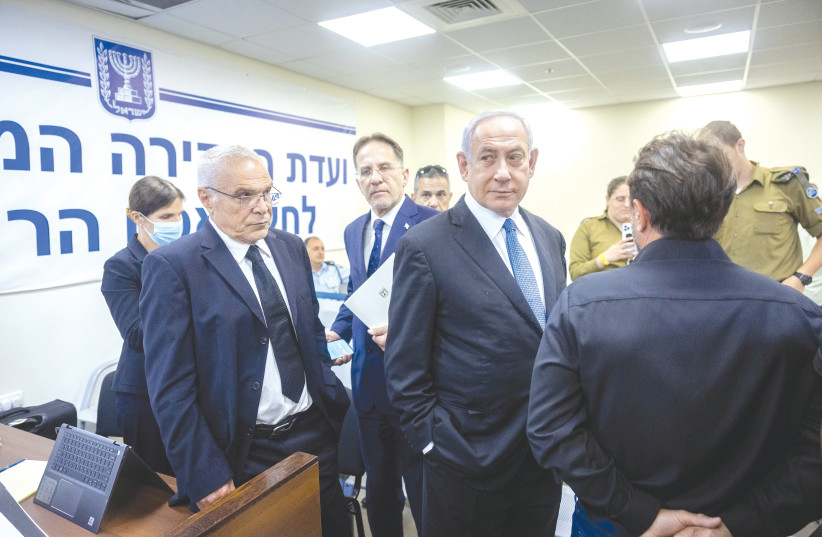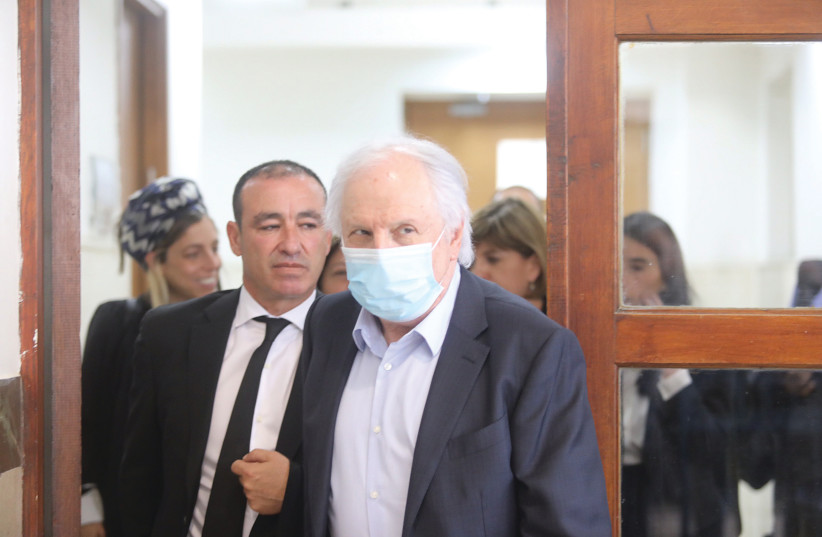On September 5, in the height of election season, the trial of former prime minister (and current candidate) Benjamin Netanyahu will restart after an approximate six-week summer recess.
What have been the latest developments, and where will the trial go from here?
The Netanyahu trials: Where we stand
The trial opened in May 2020 and witnesses were first called in April 2021. The focus, so far, has mostly been on Case 4000 – the Bezeq-Walla Affair. But this past summer, the prosecution started to dig deeper into Case 1000 – the Illegal Gifts Affair.
When the trial restarts, it will be at the tail end of the cross-examination of Hadas Klein, an aide to billionaire tycoon Arnon Milchan and key prosecution witness against Netanyahu.
Following the completion of her cross-examination, the prosecution hopes to call many of the other witnesses in Case 1000, including Milchan’s driver, his house manager, suppliers who sold him the cigars and champagne so he could give them as gifts to Netanyahu – and eventually, Milchan himself.
After that, the prosecution hopes to shift gears back to Case 4000, including bringing various government regulator witnesses in an attempt to show that Netanyahu and his lieutenants improperly pressured them into helping Bezeq, and then various police interrogators of several witnesses in the case.
Finally, the prosecution plans to return to another round of Case 1000 witnesses and eventually conclude with calling witnesses for Case 2000, the Yediot Aharonot-Israel Hayom Affair.
Bibi's lawyers: Prosecution delaying police interrogators' testimony
The defense has complained that the prosecution is improperly delaying calling the police interrogators, who the defense is looking forward to “feasting” on for various errors it has already proved that they made.

However, the court is likely to let the prosecution have the schedule it wants for its witnesses and later extend that same courtesy to the defense when it calls its own.
Last week, former Bezeq and Walla owner Shaul Elovitch and his wife, Iris, filed a motion with the Jerusalem District Court to dismiss them from Case 4000 on the grounds of unjust treatment.
The Elovitches are at the center of the case against Netanyahu because Shaul is accused of engaging in a bribery scheme with the former prime minister of favorable government treatment for Bezeq in exchange for favorable media coverage of him at Walla.
Iris is accused of involvement in select aspects of the media coverage side of the scheme, including passing messages between Sara Netanyahu and Shaul or other Walla personnel, and of knowledge that there was a quid pro quo.
According to the motion, the defense said the prosecution and the police have abused the defendants in a systematic manner, which has been borne out as the trial has developed over the last two-plus years.
The motion especially cites the police’s abusive treatment of former Netanyahu top aide Nir Hefetz.
However, the prosecution has previously replied that even if not everything that was done with Hefetz was proper, his testimony – that he turned against Netanyahu out of a rational calculation of his own interests and to tell the truth – serves to mitigate the impact on the case of how the former aide was treated.
In addition, the defense said the police manufactured a narrative and then tried to coerce many witnesses to play ball with that narrative, such as another one of Netanyahu’s former top aides, Shlomo Filber.
The prosecution has also already addressed this issue, saying Filber’s accusations against Netanyahu were all voluntary and that any changes of testimony he made from the police to the court related to his loyalty to his former boss politically as well as trying to improve his image after committing crimes.
The court will likely reject the Elovitches’ motion to dismiss, as well as a parallel one that Netanyahu is expected to file.

Will Benjamin Netanyahu be acquitted?
But the court may still use these holes in the prosecution’s case at a later date to acquit Netanyahu.
In addition, the court may start to put more pressure on the sides to reach a deal.
In January, the two sides were close to a deal, but Netanyahu would not agree to end his career in politics, even with a commitment from the prosecution not to seek jail time.
Most observers believe that if there is a deal, it will only be after the November 1 election – and only if Netanyahu fails to form a government.
At that point, he might be willing again to take the one he was offered this past January.
If there is no deal, the trial is expected to last about another year and possibly longer, when adding in the defense witnesses as well as some months for the court to contemplate and issue its verdict.
